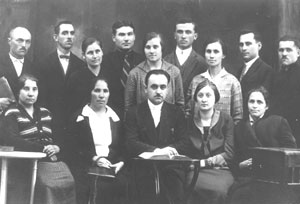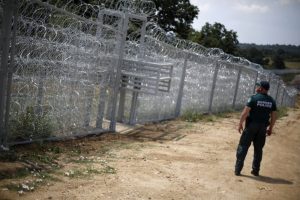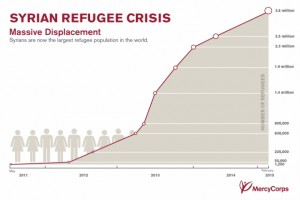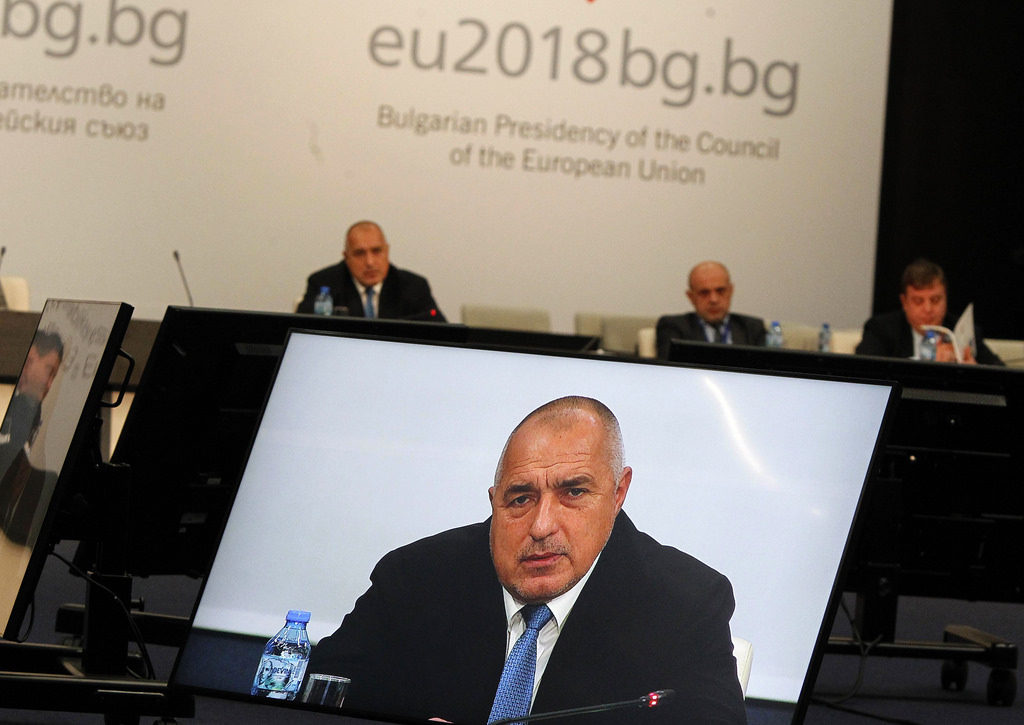Bulgarian Evangelical Churches in the European Union (2022 Report)
- Bulgarian Evangelical Churches in Germany
- Bulgarian Evangelical Churches in Spain
- Bulgarian Evangelical Churches in England
- Bulgarian Evangelical Churches in France
- Bulgarian Evangelical Churches in Belgium
- Bulgarian Evangelical Churches in Italy
- Bulgarian Evangelical Churches in Cyprus
- Bulgarian Evangelical Churches in Crete
READ MORE:
- First Bulgarian Church in Chicago Opened in 1907
- Gateway Cities for Bulgarian Evangelical Churches
- How to Start a Bulgarian Church in America from A-to-Z
- Unrealized Spiritual Harvest as a Paradigm for Cross-Cultural Ministries among Migrant and Disfranchised Ethnic Groups in America Today
Bulgarian Evangelical Churches in the European Union (2021 Report)
- Bulgarian Evangelical Churches in Germany
- Bulgarian Evangelical Churches in Spain
- Bulgarian Evangelical Churches in England
- Bulgarian Evangelical Churches in France
- Bulgarian Evangelical Churches in Belgium
- Bulgarian Evangelical Churches in Italy
- Bulgarian Evangelical Churches in Cyprus
- Bulgarian Evangelical Churches in Crete
READ MORE:
- First Bulgarian Church in Chicago Opened in 1907
- Gateway Cities for Bulgarian Evangelical Churches
- How to Start a Bulgarian Church in America from A-to-Z
- Unrealized Spiritual Harvest as a Paradigm for Cross-Cultural Ministries among Migrant and Disfranchised Ethnic Groups in America Today
90 Years Ago Pastor Nicholas Nikolov Established the Pentecostal Union of Bulgaria
 By the fall of 1927 the Pentecostal revival from Bourgas extended to several outreaches. Appropriate recognition was given by the General Council of the Assemblies of God in their September, 1927 meeting. The Latter Rain Evangel also reported revival in Bulgaria, workers trained at the Bible School and a good number saved and baptized with the Holy Spirit.
By the fall of 1927 the Pentecostal revival from Bourgas extended to several outreaches. Appropriate recognition was given by the General Council of the Assemblies of God in their September, 1927 meeting. The Latter Rain Evangel also reported revival in Bulgaria, workers trained at the Bible School and a good number saved and baptized with the Holy Spirit.
With this avid success and the arrival of Nikolov’s first-born son on November 9, 1927 came the second attempt to unite Bulgarian Pentecostals. A preliminary meeting was held in February of 1928 in Rouse where the Union’s establishing meeting was scheduled for March 28 in Bourgas.
To no surprise, only 14 delegates representing five congregations attended. The delegates voted and received the Union’s by-laws and statement of faith, based on the same documents by the Assemblies of God in America. The first annual conference of the new Union followed in October in Varna. A national General Council was set and the Executive Committee was chaired by Pastor Nikolov – at the time of his appointment he was only 28 years of age.
Trained in the United States and familiar with the Assemblies of God structure, Nikolov purposed to replicate the same organization in Bulgaria. Unfortunately, most Bulgarian Pentecostals in 1928 did not have a clear perception of the Assemblies of God and hardly felt part of the denomination. With only 20 members, the new organization was a small minority and did not represent the vast diversity within Bulgarian Pentecostalism at the time. Neither did it cause the split among Bulgarian Pentecostals as often held. The official registration of the Pentecostal Union simply confirmed the deepening division among Pentecostals in Bulgaria that had taken place since Zaplishny was deported in 1924.
The Bulgarian presidency of the Council of the European Union
January 15, 2018 by Cup&Cross
Filed under Featured, News, Publication
The priorities of the Bulgarian presidency are driven by its motto: ‘United we stand strong’, which is also the motto of the coat of arms of the Republic of Bulgaria. The presidency will work with its partners on unity among the member states and the EU institutions to provide concrete solutions to build a stronger, more secure and solidary Europe. During the next 6 months, the presidency will focus on four key areas: future of Europe and young people, Western Balkans, security and stability and digital economy.
Bulgarian Evangelical Churches in the European Union (2017 Report)
- Bulgarian Evangelical Churches in Germany
- Bulgarian Evangelical Churches in Spain
- Bulgarian Evangelical Churches in England
- Bulgarian Evangelical Churches in France
- Bulgarian Evangelical Churches in Belgium
- Bulgarian Evangelical Churches in Italy
- Bulgarian Evangelical Churches in Cyprus
- Bulgarian Evangelical Churches in Crete
READ MORE:
- First Bulgarian Church in Chicago Opened in 1907
- Gateway Cities for Bulgarian Evangelical Churches
- How to Start a Bulgarian Church in America from A-to-Z
- Unrealized Spiritual Harvest as a Paradigm for Cross-Cultural Ministries among Migrant and Disfranchised Ethnic Groups in America Today
New European Union Border Guard Launched to Protect Bulgaria-Turkey Border
 As of October 6, 2016 Bulgaria starts to play an increasingly important role in protecting its own borders and those of Europe, EU Migration Commissioner Dimitris Avramopoulos has said. Avramopoulos has attended the launch the European Border and Coast Guard at the Bulgarian border with Turkey, at the crossing point of Kapitan Andreevo. The agency, which will have some EUR 320 M in funding until 2020, is a result of the expansion of Frontex, the current EU external border agency, which has been severely criticized for inefficiency since the outbreak of the migrant crisis last year.
As of October 6, 2016 Bulgaria starts to play an increasingly important role in protecting its own borders and those of Europe, EU Migration Commissioner Dimitris Avramopoulos has said. Avramopoulos has attended the launch the European Border and Coast Guard at the Bulgarian border with Turkey, at the crossing point of Kapitan Andreevo. The agency, which will have some EUR 320 M in funding until 2020, is a result of the expansion of Frontex, the current EU external border agency, which has been severely criticized for inefficiency since the outbreak of the migrant crisis last year.
“As a front line state, Bulgaria has made coherent and everyday effort in this direction,” the Bulgarian National Radio quotes Interior Minister Rumyana Bachvarova, who has attended the inauguration, as saying. “I am confident that, starting today [Thursday], the new service for European border and coast guard will contribute substantially for the more effective management of the land, air and sea borders and will substantially boost the level of security of the European Union.”
The establishment of the guard was agreed in December 2015 as a response to the surging migratory pressure on the EU’s external borders, with some 1.5 million people having crossed into the EU between January and November 2015. “The European Border and Coast Guard combines the resources of the new European Border and Coast Guard Agency, built from Frontex, and the Member States’ authorities responsible for border management,” the EU Commission says in a statement.
Toward a Pentecostal Solution to the Refugee Crises in the European Union
 Rev. Dony K. Donev, M.Div., D.Min.
Rev. Dony K. Donev, M.Div., D.Min.
We saw them everywhere during our ministry trips through Europe. Long columns of dark bearded men, covered women and malnourished, underdressed little children. They fill the refuge villages in Bulgaria near the Turkish border. Many of them were forced to travel in long trains from Austria to Hungary, Germany and all the way to the large Muslim ghettoes of Amsterdam and East Berlin. And even at the Dover side of the English Channel, where tens of miles long truck columns were parked directly on the interstate waiting for the refugees to pass with the ferryboats.
Every minister/missionary should at least wonder about a solution to this largest migration wave of the century. What is the proper human, Biblical approach toward these people regardless if they are persecuted Christians, migrating terrorists or just refugees without a country? What would be the Pentecostal (in the Spirit of Pentecost) response to their fate?
Several outspoken Pentecostal denominations have already raised awareness to the issue with a call for a “Christian assimilation.” Frankly, “assimilation” as an anthropological term is outdated even in the most assimilative cultures in the world. In the United States, once a melting pot of ethnos and cultures, modern day emigration takes terms in creating subcultures. In such cultural setting, assimilation is fairly hard to achieve and quite imperialistic as an approach. It is also not a religious term – the proper faith language being “proselytizing.” Even the Bible states that at the end “every tongue shall confess” picturing a multitude of ethnoses, not merely one assimilated culture. With all this, a call for cultural assimilation on part of Christianity borders a call for crusades, even the thought of which is inapplicable in 21st century’s society.
On the part of Islam, a Muslim subculture allowing assimilation without conflict and resistance will be practically impossible to achieve. And how exactly do you convert with words in a culture that allows speaking only to men? We all know of ministries or missions that have done successful work among Muslims, but what is observed in today’s context of ministry among Muslim migrants is unfamiliar to even experienced missionaries. A Muslim subculture is being created so fast, so vast and so unified throughout European Union countries, that it threatens to assimilate the Christian local host-culture before being assimilated or culturized within Western Christendom. Pentecostal churches throughout Europe are simply not prepared for such challenge, as confirm leaders of “Maranatha Ministries,” the largest Pentecostal church in the Netherlands.
The single greatest challenge is perhaps that the Islamic culture is not like any of the known subcultures in the Western World. While Hispanics focus on their language and Asians accent on their heritage and predecessors, the Islamic subcultures are being centralized around the Sharia Law. The newly forming subculture then is not simply ethnic or heritage oriented, but a legal precedent – often in direct contradiction with the law of the land. How do we engage the Sharia Law mindset with the law of Grace to effectively penetrate with the Message of Salvation such closely guarded culture, will be the answer to this current dilemma of ministry. Although not a complete solution, the following practical steps are much more Christ like and suitable to the situation than a theoretical assimilation, which may prove to be nothing more than a 21st century crusade:
- Fast from your daily Starbucks (Costa, or coffee brand of your choice) for a month. With the money you can sponsor one refugee child out of starvation. The cost is the same, but saving a child tastes much better than java
- Team up with a Pentecostal church in Europe, which is directly working within the refugee camps. It will not be hard to find one as only a few Pentecostal churches in Western Europe are involved in refugee work
- Prayerfully consider going to Europe yourself and contribute your time and resources toward a refugee camp.
Speaking at the Annual Conference of the Bulgarian Christian Student Union in Lyaskovets
 On October 25, 2009 after ministering in the morning service of the Gabrovo Church of God, we traveled to Lyaskovets near Veliko Tarnovo to minister at the annual national conference of the Bulgarian Christian Student Union. The main speaker of the conference was the National Student Coordinator of the Macedonian movement, Nicolas Galevska. Other speakers included, Dr. Benjamin Peev, Zefian Nicholas from Albania, Petyo Valkov, Trife Trifonov and Dr. Dony Donev.
On October 25, 2009 after ministering in the morning service of the Gabrovo Church of God, we traveled to Lyaskovets near Veliko Tarnovo to minister at the annual national conference of the Bulgarian Christian Student Union. The main speaker of the conference was the National Student Coordinator of the Macedonian movement, Nicolas Galevska. Other speakers included, Dr. Benjamin Peev, Zefian Nicholas from Albania, Petyo Valkov, Trife Trifonov and Dr. Dony Donev.
Dr. Donev spoke on “ChristSpace: How to Revolutionize the Internet for Christ”. The well attended session covered various topics on how to minister using the internet with special focus on the growing influence of the social networking movement and upcoming release of Google Wave. A time for questions and answer was left as a round table discussion at the end of the meeting. All present were given a souvenir ring with our website “Bibliata.TV” and encouraged to create and upload their Christian videos to this site using any camera capabilities they may have. We are thankful for the local church team who attended and filmed the event, for their work is essential for the future development for the newly started Church of God congregation in Veliko Tarnovo, where we ministered also before leaving.
Finding Ivan Voronaev (a.k.a. John Voronaeff) at the Graduate Theological Union of Berkeley, California
Our research on the life and ministry of Ivan Voronaev (a.k.a. John Voronaeff), one of the first Pentecostal missionaries to Bulgaria is about to be published after discovering the final group of evidences in the Bay Area of California. These documents are part of some Baptist periodicals which cover the time when Voronaev and his family completed their journey from Russia, through Manchuria and Japan, and reached San Francisco. The year is 1912.
Voronaev quickly becomes accounted to the Russian Baptist churches in the Bay Area and soon becomes a leading figure in the Russian Baptist Church of San Francisco. This relationship is quickly erupted when Voronaev receives the Baptism of Pentecost and moves north toward Seattle, Washington. All this and much more we were able to discover at the library of the Graduate Theological Union of Berkeley, CA directed by David Stiver and upon the recommendation of our friend and colleague Dr. Albert Wardin of the Southern Baptist Historical Library & Archives in Nashville.










